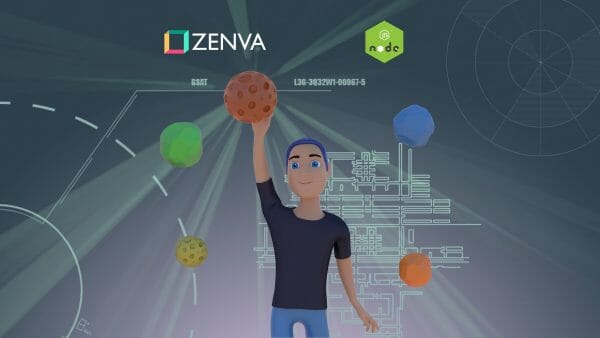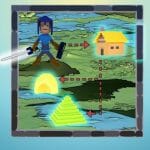As technology has grown, so has the use of the word “programming.” Not only has computer programming become the secret backbone of our society, but it also has also become one of the most desirable fields to get into. Everywhere from retail businesses to high-end agencies like NASA have become reliant on programming to some degree – and it has allowed us to transform our lives in ways we couldn’t comprehend even 40 years ago. So, it’s understandable if you’re interested in programming.
However, when it comes to getting involved with the field, there are a lot of questions to answer, starting with “What is Programming?” After all, if you’re a beginner, this is not some magical definition you were born knowing. In this article, we’re going to answer some of the basics of what computer programming is, why it’s a great field, and also how you can start learning computer programming to change your life. Whether you’re a career-minded individual or someone just interested in it as a hobby, we’ll help you take those first steps!
What is Programming?
To begin, we’ll discuss the what – as in what is programming?
In the most basic terms, programming is the action of writing a set of instructions for a computer to perform. This includes everything from something as simple as deleting a file, to connecting to the internet and displaying a webpage, and all the way to performing the numerous calculations that let you play a computer game. If you were to strip all of these down, all you would find is tons upon tons of instructions that explain to a computer (or mobile device) exactly how to accomplish each task, just in a way the computer understands.
However, to further understand the definition above, we need to dive into two more technical concepts: how computers work and programming languages. This will help you understand why computer programming is even a thing, and why we need specialists to write instructions.

How Computers Work
Let’s talk a bit about how computers work, at least for the purposes of understanding how it applies to computer programming.
Without going into the complicated world of circuitry, all computers operate on the principle of whether you’re sending an electrical signal or not. The most common analogy people use here is a light switch. In other words, you can assign a value of 0 or 1 based on whether the light switch is off or on. Now, for a human, turning a light switch on or off is not instantaneous, and it takes us a few fractions of a second to accomplish this once. For a computer, this happens thousands of times more quickly – so we can build up numerous sequences of 0’s and 1’s at a rapid pace.
Given this, computers were made in order to divide these signals (0’s and 1’s) up into 8-digit sequences that can then be given a specific meaning. For instance, when you hit the “S” key on your keyboard, what your computer is actually seeing is 01110011. However, because of some innate instructions given to the computer, it knows what key this correlates with and can perform whatever actions are necessary related to it.
As you might have guessed, we’re talking about binary. And with binary, we have the machine code which the computer actually uses whenever we interact with it. And yes, every program you use is essentially made up of this binary, whether you see it or not.

What is a Programming Language
So, we’ve learned how computers work essentially with a complicated machine code that’s just two numbers. However, you may pause and think, “I’ve never heard of anyone using binary to make a program.”
That’s because we don’t in these modern times. On the surface level, it would be extremely difficult, tedious, time-consuming, and so forth to have to use binary to make even a simple calculator program, let alone a program as complicated as a video game or word processor. So, to make the process of making computer programs more human-friendly, we had to find a way around this.
This is where programming languages come into play. Programming languages were languages made to be the middle-man in this scenario. While they don’t resemble human languages in the way that we understand languages like English, they were made to be more human-readable. In this way, human programmers can type instructions, like the classic “Print Hello World”, without the need to figure out how that’d work in binary. Instead, programming languages use interpreters or compilers to “read” the code, and translate it into the machine code.
As such, programming languages have become a staple of how we program – they provide us humans a much easier way to tell the computer what to do, without needing to type 0’s and 1’s for eons.
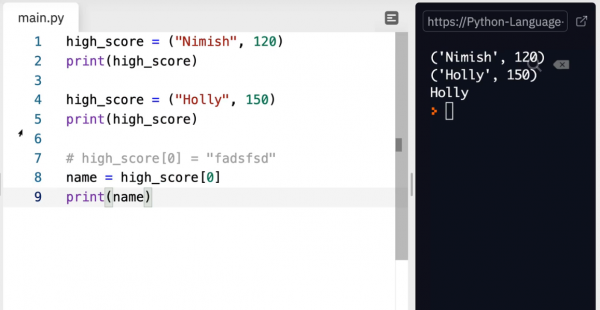
Summary
All in all, computer programming is a very specialized industry. As computers are not people, we cannot communicate with them in the same way we would a fellow human. Instead, we use programming languages and their various nuances to create instructions that the computer can be made to understand. So while what we said earlier, in that programming is about writing instructions, is true, these instructions have a very specific format and process in order to be able to mesh with how a computer sees the world.
Why Learn Programming?
Hopefully, you now have a better understanding of what programming is, why computer programming is the way it is, and why we have programming languages. But, we still need to answer why you would want to learn programming. After all, it does sound challenging and there are just so many programming languages – so is it worth it to learn? Below, we’ve included five main reasons why computer programming can help make your life a bit better!

In-Demand Industry
Regardless of specialty, experience level, or programming languages you know, programmers are in high demand.
If you haven’t noticed, technology is growing around us at a rapid pace. Consider the fact that the internet only really started to take off in the 1990’s. Fast forward 30 years later and society basically would struggle to function without the internet. When compared with the entire view of history, this is extremely fast. However, because of this growth, more and more programmers are needed to not only help create this technology, but also take advantage of everything our new technologies offer us.
However, you don’t have to take our word for it. Instead, let’s turn to some data. To begin, the U.S. Bureau of Labor Statistics is expecting an immense job increase over the next few years. While it only tracks web development and software development (both of which feature programmers), by 2028 there are expected to be over 300,000+ more jobs in those fields combined – and that is just the U.S. Worldwide you can expect even more jobs to be created!
In fact, if we just consider programmers for software development, ncube‘s data research show there will actually be a shortage for employers seeking these experts. At current, STEM graduation rates are not matching with employee retirement. Added with the new jobs created above, and there is expected to be 1.4 million more jobs than there are people with the necessary computer programming skills to fill them. So, saying there is demand might actually be considered an understatement.
With evidence to back it up, there are tons of opportunities out there just waiting to be snapped up by career-minded individuals!
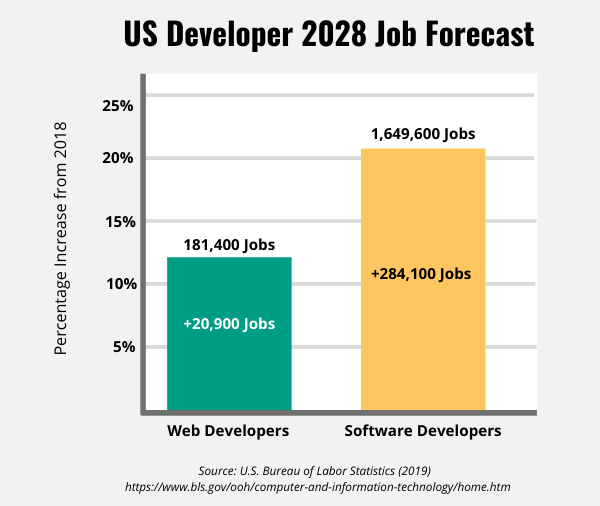
Excellent Salary Potential
Most people don’t want to work for free, so money is a factor to consider. Thankfully, learning to program comes with some ample salary opportunities.
Now, of course, what you can earn depends on a lot of things. Just to name a few elements that will affect your earning potentially: your personal experience level, your location, your sub-specialty, programming languages you know (though know any programming language is great), the company you work for, your portfolio, etc. As such, please keep in mind we can only quote averages (and we’ll be focusing on U.S. data).
That being said, knowing how to program is in high demand as mentioned, so salaries available are high. Below are some salary averages for Junior Programmers:
- SimplyHired: $72,165
- PayScale: $79,527
- ZipRecruiter: $48,942
- Glassdoor: $72,199
Meanwhile, Senior Programmers have the following averages:
- SimplyHired: $93,251
- PayScale: $107,169
- ZipRecruiter: $88,085
- Glassdoor: $101,063
The following sites reported the average salaries below, but did not differentiate between junior and senior programmers:
- U.S. News: $93,000
- CareerExplorer: $85,237
- Indeed: $59,663
As you can see, computer programming can be a lucrative career, and your skills won’t go to waste!
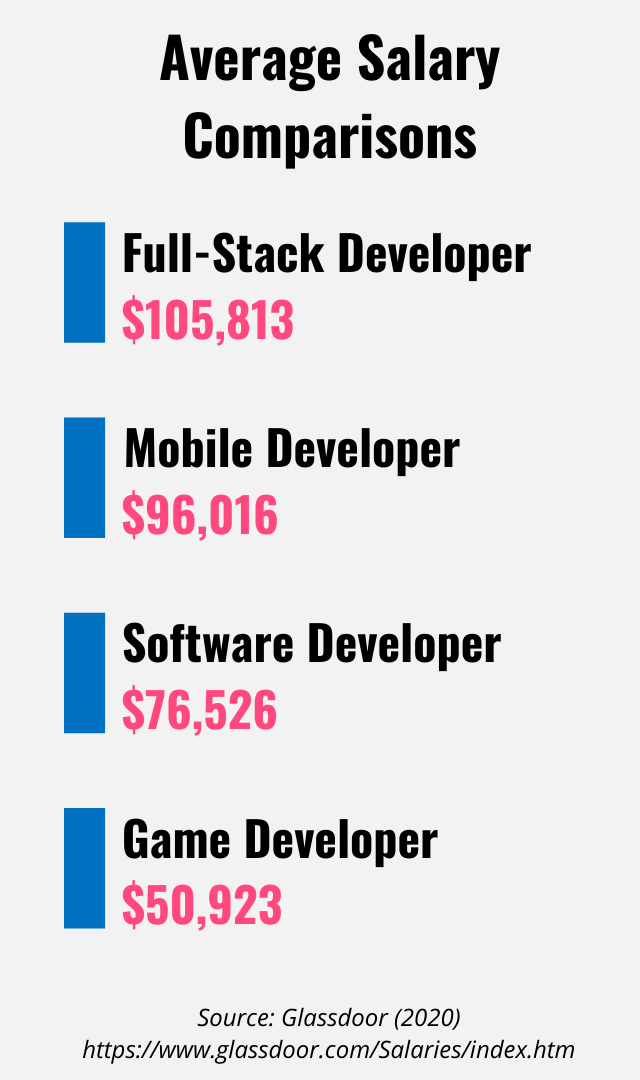
Useful in Many Industries
So, maybe you don’t want to be in the generic programmer industry where you’re just making whatever comes your company’s way. However, before you write it off as a career, you should know programming is seeing a lot of use in other industries as well.
For example, programmers are seeing technologies like virtual reality and augmented reality being just about everywhere. Schools are using them to create educational materials for kids with robust virtual experiences. Architects and engineers are using them for building prototyping and touring. And even other job types are starting to use these technologies for job training.
Of course, the above example is one technology. Other technologies like AI are also being expanded in incredible ways to change every industry with new tools and techniques. Regardless, though, wherever you find technology being expanded, you’ll find programmers leading the way and improving the technologies for each industry’s needs.
As such, programmers are definitely not limited to just making software. Computer programming skills can be used in a number of innovative ways to expand a number of areas – and if you can catch that wave, the more competitive your resume will be!
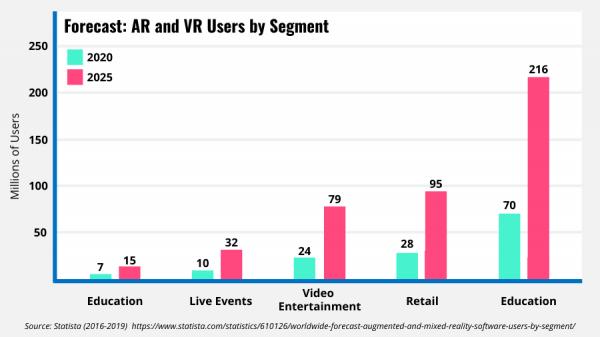
Improve Efficiency
While this isn’t true of every person, most people are reliant on a computer or mobile device in some manner. Some use them to run online businesses, others use it to help track statistics, some people use various apps for studying, or maybe you just use it as your alarm or calculator. Whatever the case may be, computers have been able to provide us with a variety of tools that help us improve our lives.
However, what if I told you we hadn’t really scratched the surface here of what these tools can do?
Each person’s needs are different when it comes to technology. For example, if you ask a bunch of people how they prefer to read the news, you’ll get a lot of different answers. Some like to browse one major news site, some people prefer to look at several news sites for different interpretations, and some like to curate their news so they’re only seeing specific topics vs. every piece of news made available. Whatever the case, every person wants something a little different that may or may not exist as a feature of the tools they use.
If you know how to program, though, you can simply make a tool that does exactly what you want it to do. In our analogy above, for example, the person who wants the curated news could make a web crawler that searches for specific genres or keywords automatically and then push those relevant articles to a feed. In so doing, the person no longer has to manually curate anything themselves – the computer does it for them.
Of course, this is just a hobbyist-level sort of tool you can make. There are numerous other applications for custom programmed tools professionally. For example, you can create a tool that automatically generates charts based on data every month. Or you can make a tool that automatically backs up your computer. Maybe you need a tool that performs some routine file and folder management every week.
There are numerous tedious tasks such as these that don’t generally need human intervention to get done – they just need the proper instructions. By knowing how to program, you can vastly cut down on many of these tasks and let the computer take care of it for you. Not only will this improve productivity and efficiency, but gain back a lot of valuable time you can use elsewhere.

Create Dream Apps & Games
The last item on this “why learn programming” list is simple: knowing how to program lets you build your programming project ideas. Obviously, whether we’re talking about a video game, mobile app, software program, or similar, they all need a bit of computer programming to work. While you can certainly hire someone to do all the programming for you, most people don’t have a small business loan amount of cash on hand to do so. Plus, if you consider the mentions of salary above, you’ll know that programmers are pretty expensive – especially if you’re looking for more niche programming languages where only handfuls of developers might know them.
If you learn how to program on your own, though, you can bypass the need to hire someone. Instead, you can take the reigns yourself and turn your dream into a tangible product. Even if you don’t want to stay a programmer long term, and aim to open a business where you’re just the boss, having a background in computer programming can still improve your future your communication skills in this arena. All in all, though, if you have a software-related dream, knowing how to program can help you get there.
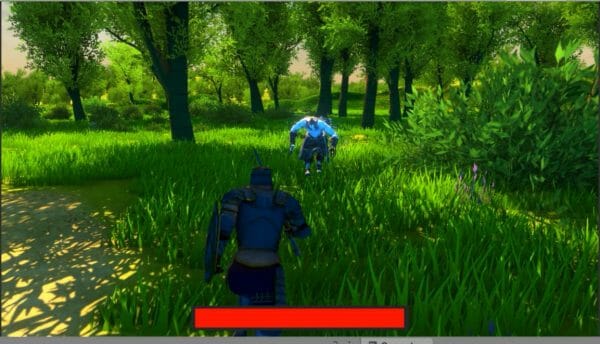
How to Learn Programming?
With knowledge in hand, it’s time for the final phase of our computer programming adventure. This, of course, would be where you learn how to program. Unfortunately, this is not an easy skill to pick up – but with good study material, practice, and self-discipline, anyone can learn! We’ve divided this up into two easy sections below with tons of resources, so please take a look!
Choose a Language
Obviously, a big bulk of programming is just about knowing a programming language. There are a lot of programming languages available, all with their own pros and cons. We have an article that discusses that at length. However, for the purpose of this article, we’re going to tackle just the most popular ones you can choose to learn. Also, if this is your first time, don’t stress too much about the choice! Once you learn one programming language, and computer programming fundamentals in general, it’s very easy to learn others!
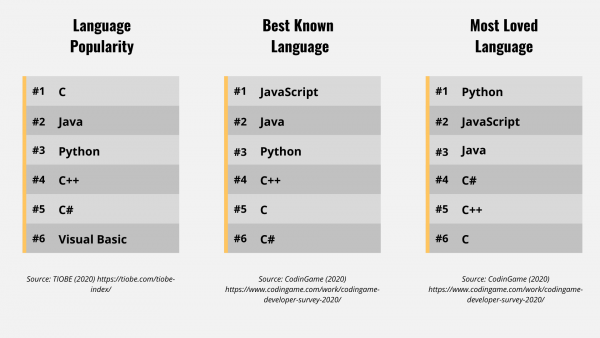
HTML, CSS, and JavaScript
HTML, CSS, and JavaScript are bunched together on this list as all three of them form the core of web development. HTML is used to lay out websites, CSS is used to aesthetically style them, and JavaScript provides dynamic interactivity. As such, if you’re interested in the web, they’re a fantastic choice to learn with the resources below.
- Full-Stack Web Development Mini-Degree by Zenva
- HTML & CSS 101 – Web Development Fundamentals by Zenva
- JavaScript 101 – First Programming Steps by Zenva
- HTML5 Hive
- Responsive Web Design Tutorials by The Net Ninja
- How I Would Learn Javascript FAST in 2023
- Learn web development as an absolute beginner (2020) by Coder Coder
- JavaScript Programming All-in-One Tutorial Series by Caleb Curry
- JavaScript Tutorial Beginners by Dani Krossing
- HTML and CSS Tutorial for beginners by Coding Addict
Python
Python is a general-purpose programming language with an emphasis on being easy to read – making it a good choice for beginners. While it is used for just about everything, though, it sees the most use in data science and machine learning applications. Thus, if those are your areas of interest, this is the best choice to learn.
- Python Mini-Degree by Zenva
- Python 101 – Introduction to Programming by Zenva
- Python Machine Learning
- Python for Beginners Series by Microsoft Developer
- 30 Days of Python by CodingEntrepreneurs
- An Introduction to Software Design – With Python by Tech with Tim
- Python Project Create Real Software by Harshit vashisth
- The Complete Python Course For Beginners by Tech With Tim
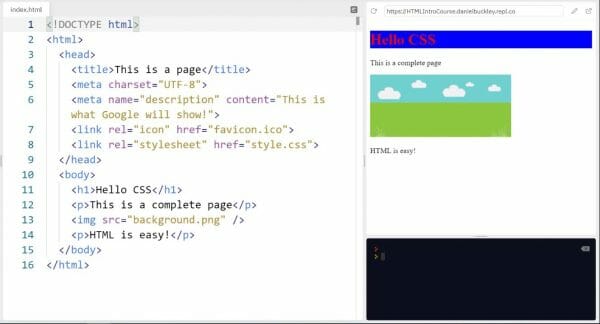
C++
Of the programming languages on this list, C++ is probably the most popular. Not only is the programming language very efficient, but also the one that probably offers the most advanced features. If you’re going to program software or games with engines like Unreal, C++ is definitely the top choice!
- C++ Programming Bundle by Zenva
- Unreal Game Development Mini-Degree by Zenva
- Unreal Engine 101 – 3D Game Creation by Zenva
- How to Get Started Programming in C++ by Nimish Narang
- Let’s Learn C++ by Trevor Payne
- C++ Programming All-in-One Tutorial Series by Caleb Curry
- 2019 Ultimate Unreal C++ Guide
- C++ FULL COURSE For Beginners (Learn C++ in 10 hours) by CodeBeauty
C#
C# is a good programming language that has been used for both software and games. It is one of the more efficient programming languages available, and comparatively to languages like C++, a bit easier to learn. C# is a great choice to learn both for software development, or if you want to create games with the popular Unity engine.
- Unity Game Development Mini-Degree by Zenva
- Unity 101 – Game Development Foundations by Zenva
- Learning C# tutorial series by Allan Carlos Claudino Villa
- How to Program in C# by Brackeys
- Introduction To C# by Dani Krossing
- C# Tutorial by Derek Banas
- C# Beginner Programming Series – Your First Day – Unity by SpeedTutor
- Learn C# BASICS in 10 MINUTES! by Code Monkey
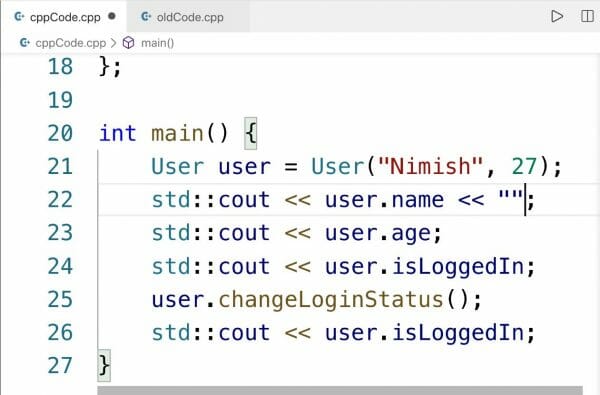
Java
Java is a solid programming language that was made with an emphasis towards cross-platform capabilities – meaning it can be used on just about any device. While Java is a fantastic language choice for software development, you’re especially going to want to learn it if you’re at all interested in developing mobile applications.
- Mobile App Development Mini-Degree by Zenva
- Android Kennel
- Zero-Day Java Guide by Mohit Deshpande
- Java Tutorial by Derek Banas
- Advanced Java for Beginners by Extern Code
- How to Use Classes and Objects in Java by Nimish Narang
- Java Tutorial For Beginners by ProgrammingKnowledge
- Java Programming All-in-One Tutorial Series by Caleb Curry
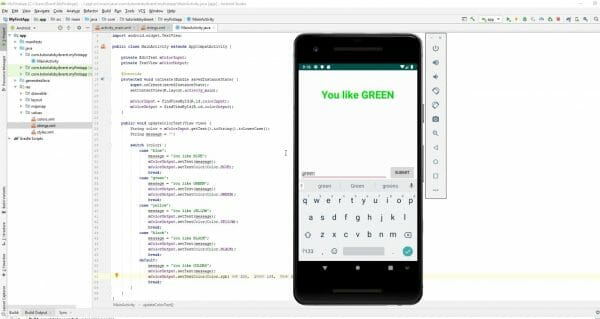
Develop a Project
You’ve learned your programming language of choice, so what now? The next step to learning how to program is to simply make a project. Obviously, don’t start with something super complicated here. You want to keep it to a small scope, and keep your own skill level in mind. However, building a project (or learning by doing in this case) is usually considered one of the best ways to learn. Not only does it let you get something concrete as the end result, but you also will cement the syntax and fundamentals you learned previously by seeing their practical application.
Before you panic though, there are plenty of tutorials that will guide you step-by-step in making a project. So, don’t worry, and consider checking out some of the projects below.
- C++ Full Course 2022
- Build Your First 3D Game in Unity by Zenva
- Create Your First 2D Game in Unity by Zenva
- How to make a 2D Platformer by Brackeys
- The Easiest Javascript Game Ever by KnifeCircus
- Java Game Programming – Develop a Brick Breaker Game by Awais Mirza
- How to Create a Game with Phaser 3 by Pablo Farias Navarro
- Create a City Building Game in Unity by Daniel Buckley
- Build a Road Crossing Game with Unreal by Daniel Buckley
- Create a Unity FPS in 3 Hours by Zenva
- Create a Unity RPG in 4 HOURS by Zenva
- Python – Text RPG Tutorial by Bryan Tong
- Build A Text Adventure Game With JavaScript by Web Dev Simplified
- Creating a React and Reactstrap Card Gallery by Olaf Minkowicz
- Build A Quiz App With JavaScript by Web Dev Simplified
- Live Coding a Math Quiz Web App with Vue by Web Dev Junkie
- HTML Tutorial for Beginners: HTML Crash Course by Programming with Mosh
- Generating random sentences by Playful Python
- How to Create a Responsive Website from Scratch by Kevin Powell
- How to Make a Complete Game with Godot by Daniel Buckley
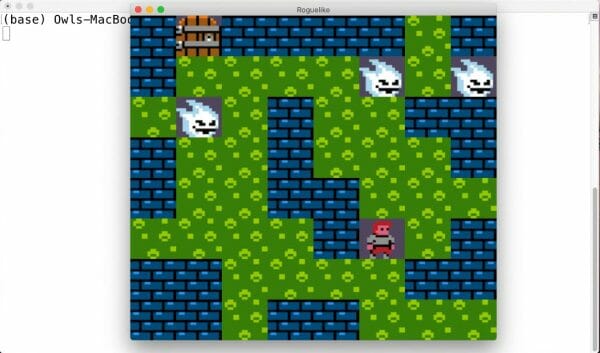
Conclusion
It’s been quite the journey, but hopefully you understand programming more than when we started. Computer programming is a fantastic field, no matter if you’re looking for a career change or want to explore it as a hobby. It allows you to create projects that can entertain, improve your life, and beyond, so it is definitely a worthwhile skill to pick up. While it might be difficult at first, rest assured you will enrich your skillset greatly with it! Regardless of your choices, though, we hope this article has helped you make informed decisions, and we wish you the best of luck!
